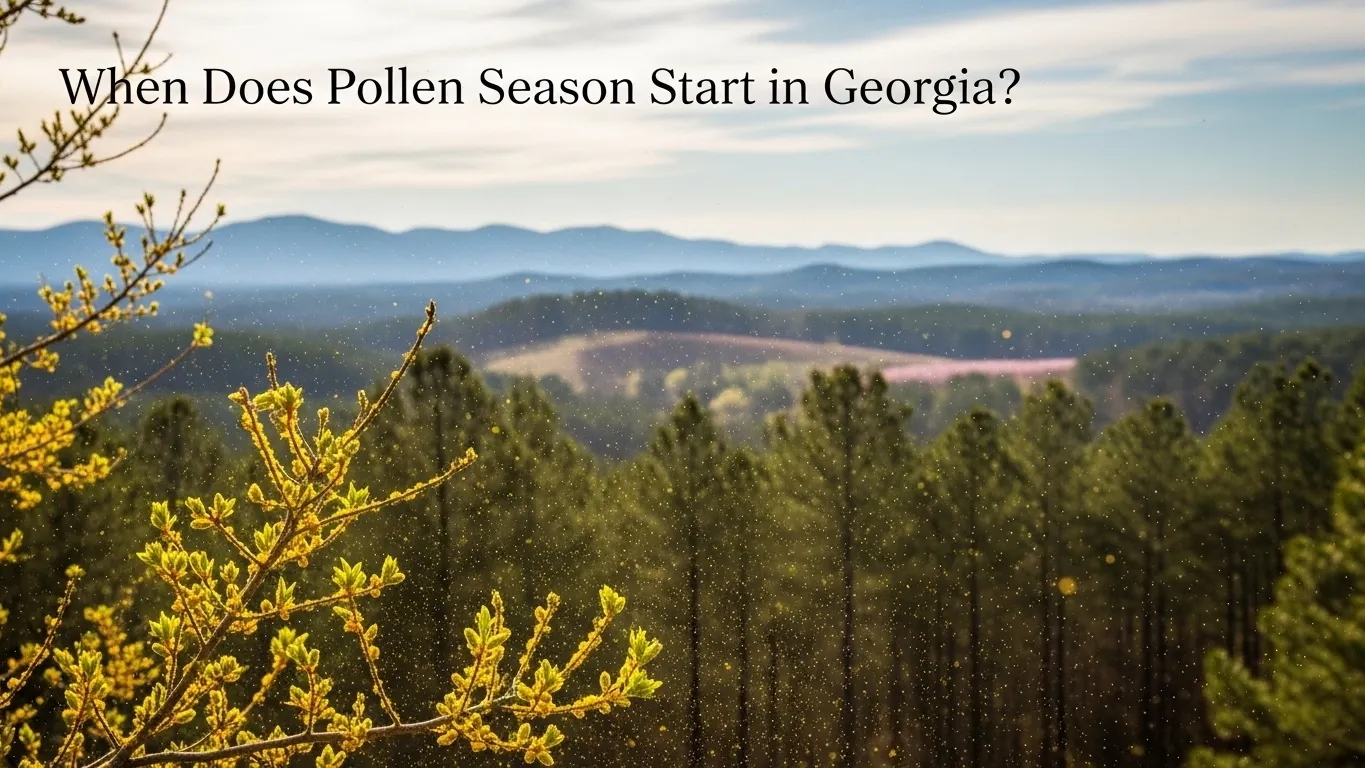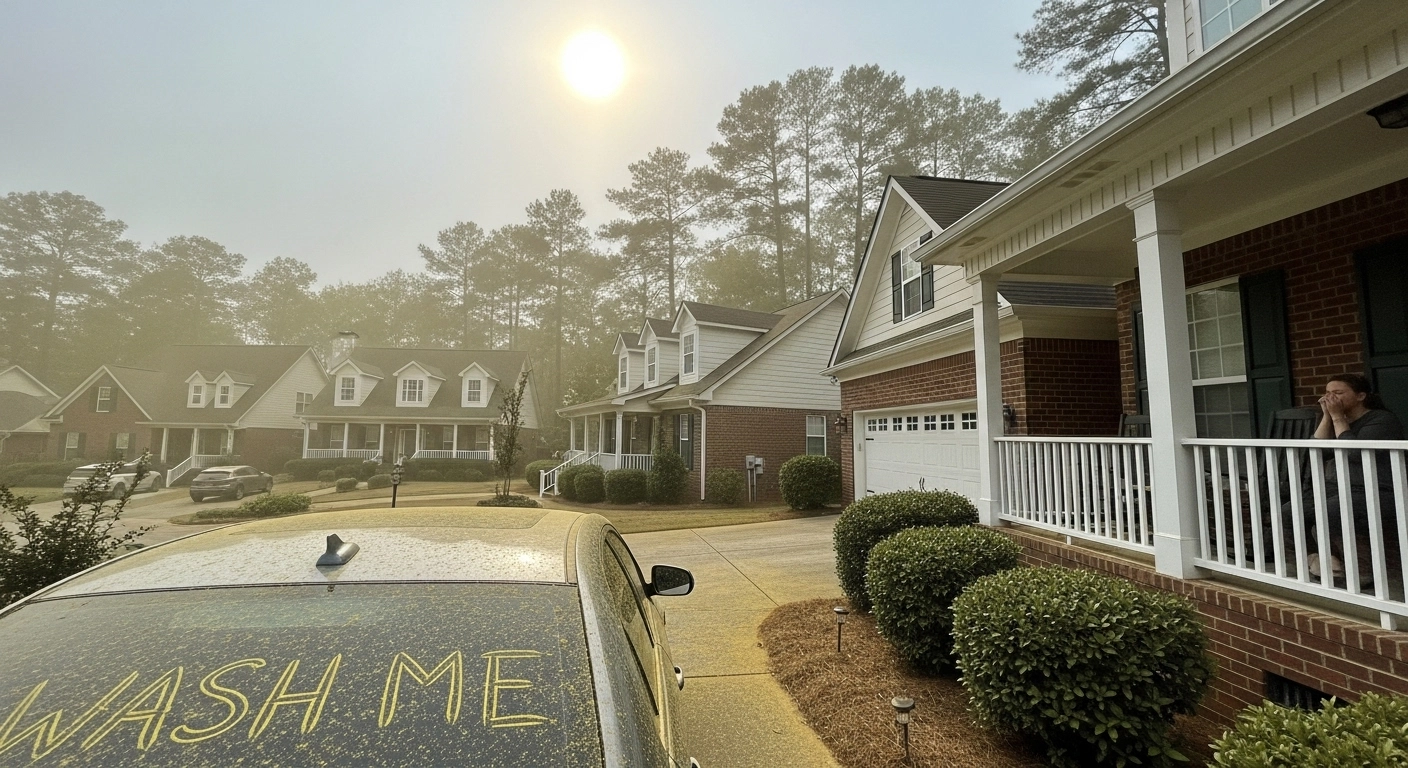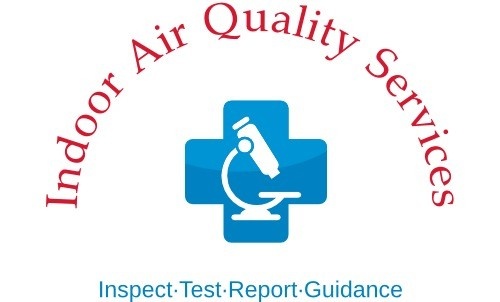
When Does Pollen Season Start in Georgia?
Sep 27, 2025Pollen season in Georgia is a well-known challenge for residents, especially those with allergies. Every year, the state sees high pollen counts that affect daily life, from outdoor activities to overall health. Understanding when does pollen season start in Georgia, how long it lasts, and how to manage it can help you prepare and protect yourself from uncomfortable symptoms.
Georgia’s unique climate and dense greenery make it one of the top states for seasonal allergies. With the right knowledge, you can stay ahead of pollen surges and enjoy life in the Peach State without constant discomfort.
Introduction to Pollen Allergies in Georgia
Pollen allergies occur when your immune system reacts to the fine, powdery particles released by trees, grasses, and weeds. In Georgia, these allergies are widespread because of the region’s warm weather, long growing season, and abundance of plant life. For many, spring brings not only flowers and greenery but also sneezing, itchy eyes, and congestion.
What Are Seasonal Allergies?
Seasonal allergies, also known as hay fever, happen when the body overreacts to allergens like pollen. Symptoms usually peak during specific times of the year when plants release pollen into the air. In Georgia, these reactions can occur almost year-round because different plants release pollen in different seasons.
Common Allergens in Georgia
Georgia’s allergy season is fueled by a variety of plants:
-
Trees
: Oak, pine, cedar, and maple are some of the strongest pollen producers. -
Grasses
: Bermuda grass and Timothy grass are common culprits in late spring and summer. -
Weeds
: Ragweed dominates the late summer and fall season.
This wide range of allergens explains why there is so much pollen in Georgia compared to other states.
Seasonal Allergy Symptoms in Georgia
Symptoms can vary from mild to severe, depending on the pollen type and exposure. Common signs include:
- Sneezing and runny nose
- Itchy or watery eyes
- Scratchy throat
- Fatigue or headaches
- Worsening asthma symptoms
If you live in the state, it’s important to recognize these symptoms and link them to pollen exposure.
When Does Pollen Season Start in Georgia?
So, when does pollen season start in Georgia? The season typically begins as early as February, with tree pollen kicking things off. By March and April, pollen counts usually reach their peak, blanketing cars, sidewalks, and outdoor furniture with a noticeable yellow-green dust.
Compared to many other states, when is pollen season in Georgia is earlier and longer, thanks to its mild winters and early spring blooms. Residents often experience allergies before spring officially begins, making preparation essential.
What Months Are Peak Allergy Season in Georgia?
The most intense allergy months in Georgia are March through May, when tree pollen dominates. Grass pollen follows in late spring and summer, while ragweed pollen peaks in late August through October. This extended pattern means allergy sufferers may struggle for most of the year without proper management.
When Does Allergy Season End in Georgia?
Allergy season in Georgia typically winds down by late October or early November. However, the exact timeline depends on weather conditions. Mild falls can extend pollen release, while an early cold snap may bring relief sooner. For many, allergy symptoms only ease after the first frost of winter.
Understanding Pollen Count and Its Impact
The pollen count measures how much pollen is in the air on a given day. Georgia is known for extremely high counts, often exceeding levels that are considered “very high” nationally. Pollen counts affect how severe allergy symptoms feel, making it important to check daily forecasts before planning outdoor activities.
Health Implications of High Pollen Levels
High pollen exposure can trigger more than just sneezing. For people with asthma or other respiratory conditions, pollen can worsen breathing difficulties. Prolonged exposure may also cause fatigue, poor sleep, and a decreased ability to focus. Children, the elderly, and people with weakened immune systems are especially vulnerable.
Recommended Protective Measures Against Pollen
To reduce exposure:
- Keep windows closed during high pollen days.
- Use HEPA filters in your home.
- Shower and change clothes after being outdoors.
- Wear sunglasses to protect your eyes from pollen particles.
Simple lifestyle changes can make a big difference in daily comfort.
Allergy Symptom Relief and Treatment Options
Finding the right treatment is key to surviving Georgia’s long pollen season.
Limit Exposure
Avoid outdoor activities during peak pollen times, usually in the morning and on dry, windy days.
Medications
Over-the-counter antihistamines, nasal sprays, and decongestants can help control symptoms. Always consult a doctor before long-term use.
Sublingual Immunotherapy
This treatment involves placing a small dose of allergen extract under the tongue to build tolerance over time. It’s a long-term solution for those with severe allergies.
Finding the Best Allergist in Georgia
If your symptoms are severe or don’t improve with over-the-counter remedies, it may be time to see an allergist. Specialists in Georgia can perform tests to identify which specific allergens affect you and provide tailored treatment plans.
Living with Pollen Allergies in Metro Atlanta
Atlanta is one of the hardest-hit cities when it comes to pollen counts. The city often ranks in the top 10 in national allergy reports. With tree-lined streets and surrounding greenery, residents need to stay extra vigilant during peak seasons.
About Air Allergen & Mold Testing, Inc.
Air Allergen & Mold Testing, Inc. is a Georgia-based service that helps residents identify and address indoor air quality issues. By testing for pollen, mold, and other allergens, they provide valuable insights into reducing allergy triggers inside your home.
Schedule Your Indoor Air Quality Check Today
Worried about the air inside your home? Our professional indoor air quality inspections help identify hidden pollutants, allergens, and airflow issues so you can breathe cleaner, healthier air with confidence.

